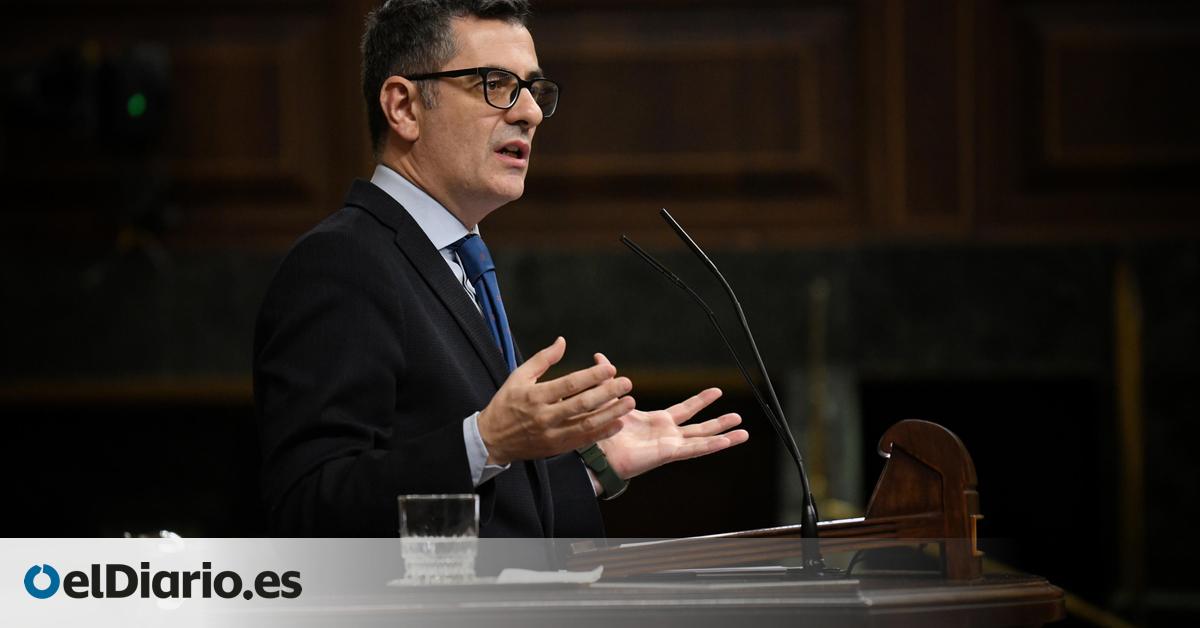
The Council of Ministers will approve on Tuesday the new classified information law and send it to Congress for parliamentary processing. The project wants to replace the Law of Official Secrets of Franco (1968) and establishes for the first time the automatic declassification of confidential information when certain deadlines take place. In this way, Spain is in line with the most advanced laws in this area, according to government sources, since France, Denmark or Sweden have more extensive deadlines.
The bill regulates four categories of classified information: “High Secret”, “Secret”, “Confidential” and “Restricted”. The first two are exclusive competence of the Council of Ministers, and each of them gradually assigned a temporary classification limit taking into account the risk of unauthorized revelation or improper use. The maximum classification time will be 45 years extendable in a motivated way for another 15 years.
This establishes a limit of 60 years, as stated in the document to which eldiario.es has had access. But the bill hides an escape route. Article 16 states that “the declassified information may not be classified except that the classification authority motivated and exceptionally that there are sufficient reasons that justify a new classification.” The decision must be motivated on a “threat or damage to national security and defense” and will be reviewed annually.
Likewise, it is stipulated that information related to great human rights violations or crimes against humanity may not be classified.
The government project thus reduces the maximum classification period on the proposal that the Minister of Presidency and Justice, Félix Bolaños, in the last legislature. That attempt declined when Pedro Sánchez convened the general elections of July 2023.
The current proposal introduces a system of automatic information of the information that is already declared secret. “The classified information after forty -five years or more from its classification will automatically declassify,” says the project. Of course, the government is saved again. Declassification will be automatic “unless the declassification authority appreciates, and exceptionally, that the threat or damage to national security and defense endures.” That “new classification must be reviewed annually.”
Sanction of up to 2.5 million
The project also expands the payroll of people who can request the declassification of information that is already secret. “Every natural or legal person who is the holder of a legitimate right or interest or who can justify a professional interest in classified information may request the competent authority for their declassification,” he says.
The standard includes a milder sanctioning regime and reduces the maximum fine for spreading a “high secret” or a “secret” (the two maximum levels) of three to 2.5 million euros. The minimum fine is 30,000 euros, and are applicable to both natural and legal persons.
The project that will be approved on Tuesday also establishes that those who reveal classified information can be applied by the Criminal Code, in addition to the sanctions collected by this law, so the door is left open to jail.
The law establishes that “dissemination, by any means, of classified information”, which is known so much because the law itself grants it, as well as by “fortuitous access” can be sanctioned. The sanctioning regime does not collect exceptions, but it does establish “proportionality” in the punishment and “graduation criteria.” Among them, “the exercise of the right to freedom of information.”
The project thus suffers from the same problems that NGOs already criticized the last legislature, and makes it difficult for journalists to be so sanctioned for publishing official secrets, and for the so -called ‘whistleblowers’, people who spread information to which they have access to moral or political motivations, such as Julian Assange or Chelsea Manning.
Source: www.eldiario.es

